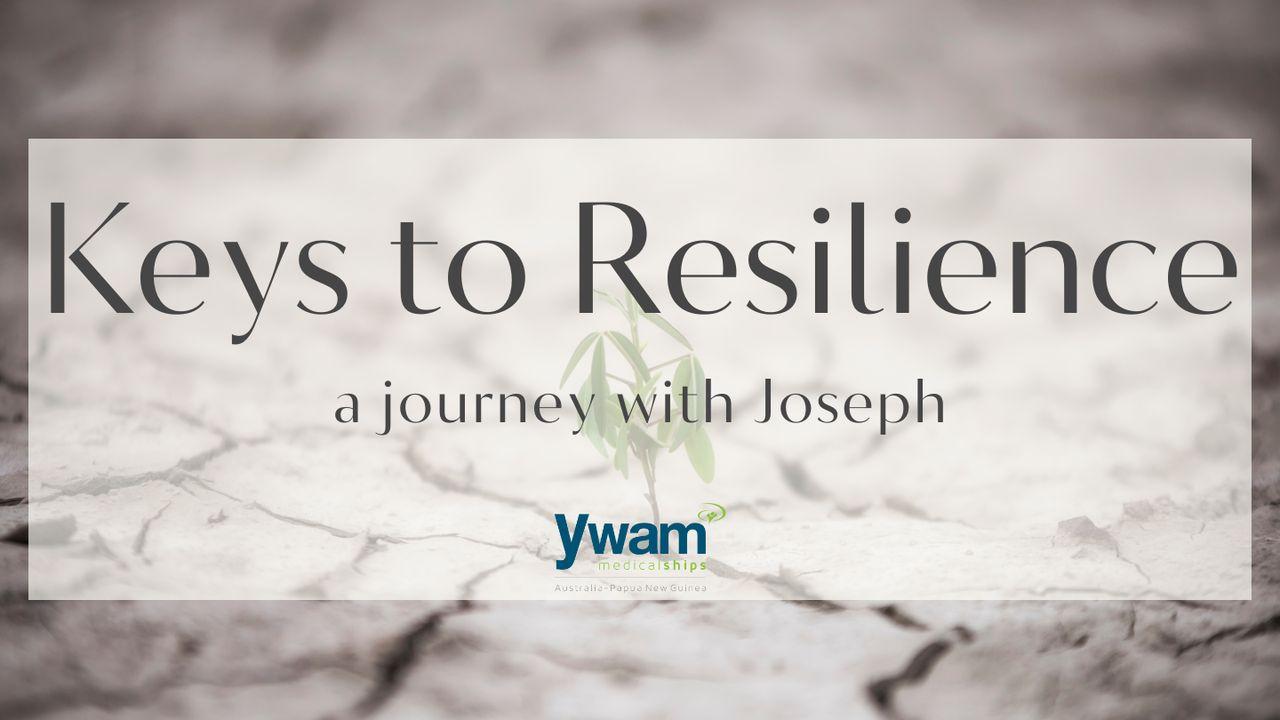Keys to Resilience - a Journey With Joseph預覽

In the rest of Joseph’s story, including today’s passages, Jacob and his whole extended family (66 people!) come to Egypt and are reunited with one another. Pharaoh allows them to make a home in the best part of the land, and they live there for 17 years.
Meanwhile, because the famine continues and as part of his job, Joseph continues to provide food for those living within the whole region. First, they buy it with money, and then in exchange for livestock, and eventually their land.
When Jacob was 147 years old, he longed to go back to his homeland to die and be buried alongside his family. He became ill, and so Joseph brought his two sons - Manasseh and Ephraim - to him, to be blessed. After doing so, Jacob speaks to each one of his sons, telling them what was going to happen, and then he passes away.
This brings us up to speed for today’s passage starting in Genesis chapter 50. Jacob has died, and the scripture begins with his embalming and seventy day period or mourning (as was the custom of the day). In the very first verse we see Joseph throwing himself over his Father, weeping and kissing him. In verse 10 we see the entire extended group lamenting, loudly and bitterly, followed by another week-long period of mourning. This kind of display - of negative, raw emotion - would be very uncomfortable to witness in our modern, Western, world. Unfortunately, this kind of very real response would most likely be viewed as weak, inappropriate, or immature. Why do you think that is?
It seems that Joseph’s family understood a fundamental lesson of life so much better than we do in our world today: life has seasons. There is a famous passage in the book of Ecclesiastes that talks about this. It says:
“For everything there is a season, and a time for every matter under heaven:
a time to be born, and a time to die;
a time to plant, and a time to pluck up what is planted;
a time to kill, and a time to heal;
a time to break down, and a time to build up;
a time to weep, and a time to laugh;
a time to mourn, and a time to dance;
a time to cast away stones, and a time to gather stones together;
a time to embrace, and a time to refrain from embracing;
a time to seek, and a time to lose;
a time to keep, and a time to cast away;
a time to tear, and a time to sew;
a time to keep silence, and a time to speak;
a time to love, and a time to hate;
a time for war, and a time for peace.”
Ecclesiastes 3:1-8
The Word of God and the world around us teach us that life has its seasons. We see it in the flowers and the weather, and we see it in the world and our lives. In this Chapter, Joseph and his extended family take their season to mourn. They understand that it won’t be forever, but it’s what they need to do right now. They understand and embrace its importance.
This kind of perspective, that life is seasonal, is key to growing in resilience. It helps us to unlock ourselves from fatalistic thinking, especially when things are not good, or not going according to plan. When we have the ability to view life for what it is - seasonal, we can respond accordingly, think positively, and take things as they come.
The last resilience principle we see within the life of Joseph is simply trusting God. When Jacob dies, his brothers once again become frightened of him. They are scared of what Joseph will do to them now that their father is gone. But once again, Joseph does not retaliate or seek revenge, but instead, he makes it clear that God is in charge, and that he trusts Him. He even goes one step further, providing for them and speaking kindly to them (the beautiful fruit of true forgiveness!)
Twice, when Joseph himself is about to die, he assures his brothers “but God will surely come to your aid.” Joseph trusts God wholeheartedly, in the good times and in the terrible times. In all the seasons of life, his eyes are firmly on God and His goodness. It is this perspective that allows him to move past adversity, and prosper through it.
And with that, we have walked through the life of Joseph through the lens of resilience! There is so much that we can learn from him. No matter what life throws in our direction, we too can become resilient people. When we flee from temptation, practice patience, walk in humility, express emotional maturity, forgive those who hurt us, trust God and see life as seasonal, our resilience will grow as will our godliness.
Did this Plan encourage you? We’d love to get to know you better!
Connect withYWAM Medical Ships Australia and Papua New Guineahere!
關於此計劃

In a life of unexpected twists and turns, becoming a resilient person is key. It is our resilience that allows us to not only survive the challenges in our lives, but persevere and prosper through them. This seven day Bible plan overviews the life of Joseph through the lens of resilience, unpacking the ways in which he handled life’s hardships, and what we can learn from his response.
More








